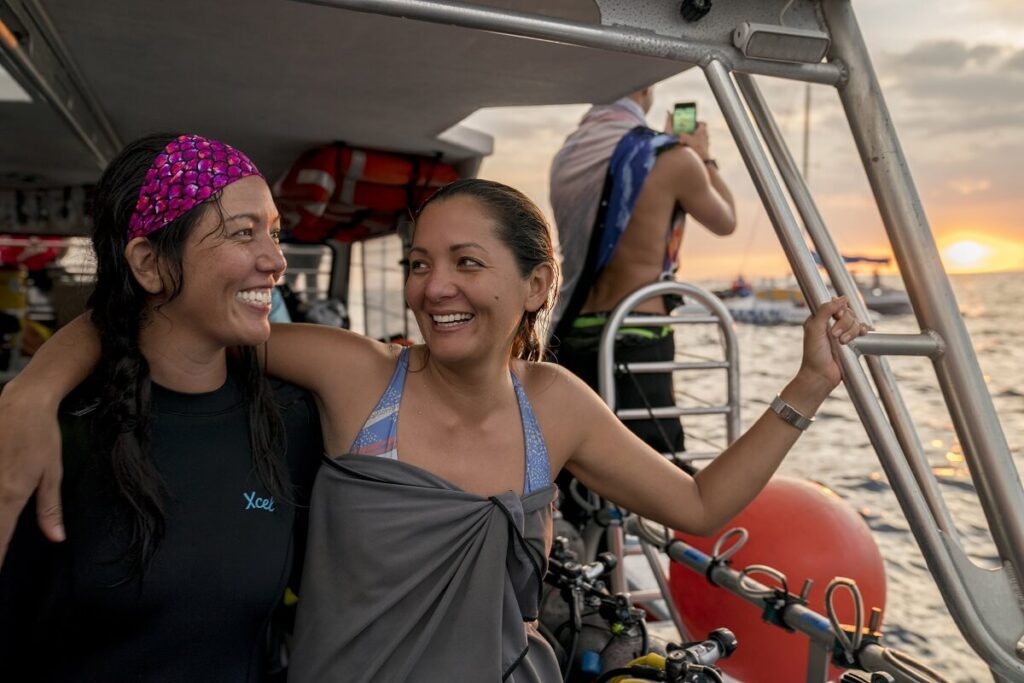So, you wanna be a Divemaster? Congratulations! Not all Divemaster courses are the same and when it comes to choosing where to do your Divemaster course, the options can seem overwhelming.
In this blog I will set out a few factors that you should consider when choosing when and where to take your PADI Divemaster course. It’s not an exhaustive list, but I think it’s a good starting point.
If you take your time and do your research and ask the right questions, you are more likely to find what you are looking for, and come away at the end with a great foundation for your diving career rather than just a certification.
So whatever your reasons are for becoming a PADI Divemaster, read on to find out (nearly) all you need to know before choosing where to take your course.
What I will cover:
Why do you want to take the PADI Divemaster course?
How long is the Divemaster course?
What location is best for your Divemaster course?
How many dives will you do in your Divemaster Course?
What will you learn in the Divemaster course?
Is the PADI Divemaster Course difficult?
How much does the PADI Divemaster course cost?
Is the Divemaster course good value?
Is it easy to find a job as a Divemaster?
Five things every Divemaster course should have. Hint: READ THIS!
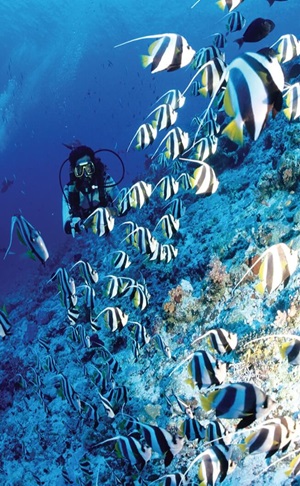
Why do you want to take the PADI Divemaster course?
Everyone’s motivation for becoming a PADI Divemaster is different. There might be one or many reasons. But I think most people’s motivation will be at least one of these two:
- To make money. This could be as a Divemaster, or later as an Instructor (you need to be a Divemaster before you can take your Instructor Course). Maybe you are looking to make some money in the short-term (eg, to help fund your backpacking trip), or longer-term as a career change.
- To gain experience. This might mean becoming a better diver through refining and expanding your skills below the water. Or it could be learning more about working in a dive shop such as fixing equipment, filling tanks and customer service.
Figure out your reasons for becoming a Divemaster before your start researching where to do your course.
How long is the Divemaster course?
You will need to have enough free time to be able to complete the course. If you are completing it full time at a dive shop then realistically its going to take at least 4 weeks. It might be possible to complete the requirements in less time than that. But if you do it will mean you have less opportunity to log dives, practice guiding, assist courses, and generally immerse yourself in the role of a Divemaster.
To start your PADI Divemaster course you need to have at least 40 logged dives and your Open Water, Advanced Open Water and Rescue certifications. If you don’t have any of these, you will need to factor in additional time to complete these.
Maybe you already have a full time job and can’t just disappear for weeks and weeks. In that case consider splitting your training into shorter segments. Maybe you don’t want to travel to complete your course and can complete it on a more flexible basis at a local dive center. Bear in mind, though, that there cannot be any gaps in your training of more than 12 months.
If you have more free time (and less cash), you might want to consider doing an internship where you will combine your training with some work at the dive store. I will cover these internships in a future blog but these will generally take you six months or more to receive your Divemaster certification.
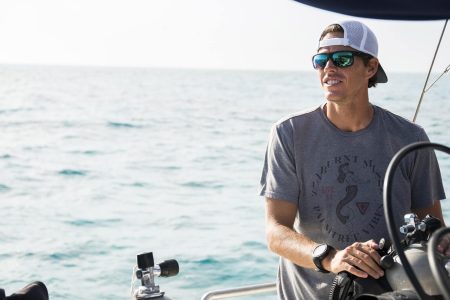
OK, so you have enough time and a good reason to take your PADI Divemaster course. Now let’s look at the different questions to ask when choosing a dive center:
What location is best for your Divemaster course?
Deciding on the location where you want to do your course will help you narrow down your options when searching for a dive shop. You will do way more diving in your Divemaster course than you will in your Instructor Development Course, so you should give location some careful consideration.
If you plan to work after your course I would recommend choosing a place with dive conditions similar to where you plan to work. For instance, dry suit or wetsuit temperatures; visibility; currents; altitude etc. Doing your Divemaster course in slightly more challenging conditions could also be useful.
Should you choose the same place where you want to work?
There are pros and cons in my opinion of doing this. An advantage would be that you could use your time in the location to make connections with other dive shops in that area. Or if you impress the dive shop where you take your course, they might offer you a job.
On the other hand, limiting your pro-level diving experience to one location means that you could be missing out on skills, encounters and knowledge that only exist in other locations. Having experience of diving in a wide range of situations, conditions and experiences means that you will be able to draw on all of that when faced with problems or issues that arise in your working life as a Divemaster.
And if you are doing your Divemaster course just for the experience?
Choose a location that you are interested in exploring. You will dive a lot during your Divemaster course so choose somewhere you have never been to before. You can visit PADI Travel’s Destinations for some inspiration.
But don’t forget to also consider…
How will you get there? Do you want to blow all your budget on just the flights? How is the cost of living in these locations? Is there access to a recompression chamber or medical facilities should the unthinkable happen? Can you speak the language? Do your homework as you will be spending longer than your average vacation time in this location.
How many dives will you do in your Divemaster Course?
You should definitely ask this question to the dive shops before you make your decision. Whilst they will not be able to confirm an exact number, you need to know on average how many dives you will do, and if there’s a maximum limit.
You need to have at least 40 logged dives to start your course, and at least 60 logged dives to finish, but in my opinion 20 dives is not a lot for you to really get to grips with all the practical duties of being a Divemaster.
If you are thinking of continuing with your pro-level training and completing your IDC to become a PADI Instructor, you need to know that you need at least 100 logged dives to attend the Instructor Exams. Two dives per day, 5 days per week over 5 weeks will get you logging around 60 dives. Ask your dive shop if that is probable and, if not, you may need to factor in the extra costs of getting more dive experience before your IDC.
The Mentor Relationship
In your PADI Divemaster course you will have a different relationship with your Instructor. Instead of being a “teacher”, your instructor will act as a “mentor” who should help you develop the attitude and judgements necessary for your role as a PADI Professional. They will give you their advice and rationale for why certain decisions were made, and you should be encouraged to ask questions.
You will probably assist different instructors during your training, but your mentor should be an experienced instructor who can share their knowledge and experience with you. Ask who will be the mentor overseeing your course when choosing where to do your course. If your mentor is a PADI IDC Staff Instructor or above, you know at least that they have a good understanding of dive theory, PADI Standards and what it means to train PADI Pros. If you have the opportunity to meet or chat with your mentor beforehand, even better.

What will you learn in the Divemaster course?
The great thing about the PADI Divemaster course is that it’s so varied, so each day is different. Let’s focus first on the components of the PADI Divemaster curriculum and then we’ll look at the different extras that a dive shop might offer.
The PADI Divemaster Curriciulum
These are the performance requirements. Your Instructor will explain what is required before you complete each component.
Knowledge Reviews and Final Exams
The Divemaster manual covers topics such as the roles and responsibilities of a Divemaster, Environmental Awareness, Risk Management and Dive Theory. There is also a two-part exam on these topics. You can complete these knowledge reviews and exams online at home if you get your Digital Divemaster Crewpack, and this will save you some study time once you reach your destination.
Emergency Assistance Plan (EAP)
You will need to create an EAP for a dive site, complete with information needed to manage a diving accident at that site. You may be able to use the same EAP you completed for your Rescue course.
Waterskills Exercises
You will need to complete a 400m swim, 15 minute tread/float, 800m snorkel swim, 100m tired diver tow, and an equipment exchange with another diver. Each skill is given a score of 1 to 5 depending on the execution, and you will need to score a total of at least 15 points. As an “average” swimmer you should be able to pass, but if you feel you are particularly poor at swimming, I would recommend you get to the pool and do some practice before starting your course.
Rescue Assessment
As part of this exercise you will need to bring a simulated unresponsive diver to the surface and then carry out a rescue of that diver with rescue breaths, removing equipment and towing the victim, and also exiting the water with that unresponsive diver. It’s no different to what you will have already done as part of the PADI Rescue Course.
Dive Skills Workshop & Assessment
You will probably hear this referred to as the “Skills Circuit”. You will need to show demonstration-quality skills of 24 skills from the Open Water Course.
Practical Application Skills
This component focuses on the typical duties of a Divemaster. You will need to show you can set up and manage a dive site, give a dive briefing, and create a map of a dive site. You will also need to conduct a deep diving scenario and search and recovery scenario (but if you have the Deep Diver and Search & Recovery Specialties you can get credit for these scenarios). If loading the boat with tanks is a typical duty of a Divemaster at your dive shop, then you will be expected to help out.
Divemaster Conducted Programs Workshops
In this component you will cover the different PADI Programs and courses that a PADI Divemaster can conduct. So you will need to review the relevant PADI standards and act as a certified PADI Divemaster in different simulated scenarios, dealing with any problems that your customers may have.
Practical Assessments
Here is where you will get to assist PADI Instructors with real divers who are either taking a course or making guided dives. As you will still be in training you will not be asked to work with student divers alone and will always be directly supervised by an Instructor. There are a minimum of four Practical Assessments that you will need to complete but its always better to do more.
Professionalism Criteria
As a Divemaster you will become a PADI Professional and your Instructor must verify that you meet the Professional Criteria. This includes things like having a positive attitude, caring for the environment, and understanding the Divemaster’s role.
Extra-Curricular things your Divemaster Course might include
The PADI components I listed above are the minimum that you will need to do to be certified as a PADI Divemaster. But the more times you can assist the instructors, practice guiding certified divers, etc, the richer your experience will be and the more value you will get from your course. Depending on the type of dive shop you choose, you may also be able to get experience in other activities such as:
- Filling tanks
- Sales experience
- Equipment repair
- Community or environmental activites such as coral reef restoration
- Workshops or try-outs of specialized diving activities such as sidemount or freediving
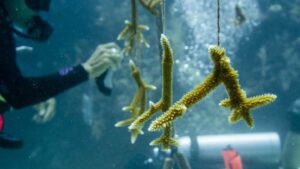
Is the Divemaster Course difficult?
I don’t think that the PADI Divemaster course is hard. You might find certain aspects of the course difficult. If you find the academic portions difficult then start your eLearning well in advance of your arrival and ask your instructor questions of any concepts you didn’t understand. Dive theory can be an issue for some people and you might find the Dive Theory Online (an optional extra eLearning program) helpful. Your instructor might also conduct extra dive theory classes during the course to help with this. Maybe you struggle with demonstrating some of the dive skills, or speaking in public when you need to give your dive briefing, but you don’t have to get things right first time, and your instructor is there to help you overcome any hurdles.
You will probably have many early mornings and busy days assisting the instructors, and that can be difficult for a lot of people but it’s a necessary part of the role. Indeed, you may decide having completed your course and seen all the “behind the scenes’ activities involved in working as a Divemaster, that a career as a Divemaster is not for you.
How much does the PADI Divemaster course cost?
The price of the PADI Divemaster course will vary from country to country, dive shop to dive shop. But one thing is for sure – nothing in this life is for free. Even if you opt for the internship, there will be costs involved. And cheapest is definitely not best when it comes to dive training.
The course price can be broken down into a price for training, for the required PADI materials and for the PADI DM application fee at the end of the course. Some dive shops may include these into one price. A quick Google search of dive centers around the world will come up with prices ranging from around $1000 USD to $3000 USD for a PADI Divemaster course ranging from 1 week to 3 months duration. Whilst price is an important factor to consider when choosing where to do your Divemaster course, there are so many variables. A more important question to ask yourself is whether that price reflects good value.
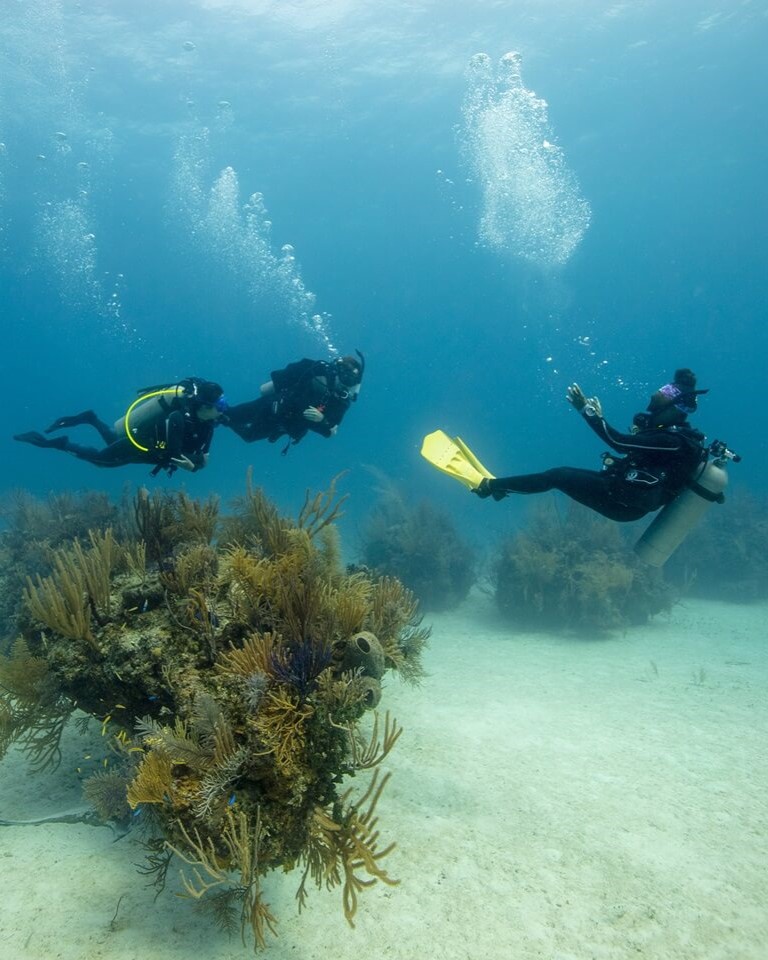
Is the PADI Divemaster course good value?
How can you decide if the price of the Divemaster course reflects good value? By considering all the things in this blog. You need to find out who will teach you, how long the course is and how many dives you are likely to do, etc before you can figure out if the price reflects good value. You also need to know what you plan to do after your course ends. Will you need 100+ dives before your IDC, or will the course give you the skills, knowledge and experience that you want to get?
As an example, if a dive shop is promising you will make 80+ dives in your Divemaster course and charging you $750 USD, that’s less than $10 USD per dive which will barely cover tank fills. And what about the instructor’s time to train you? If it sounds too good to be true then it probably is.
If your Divemaster course is a gateway to becoming a PADI Instructor, that means that the quality of the training you receive in your Divemaster course is even more important.
Is it easy to find a job as a Divemaster?
So here is where your visions of happily working as a Divemaster in a gorgeous tropical location come crashing down! I will be honest – there are fewer opportunities to work as a Divemaster compared to if you are a PADI Instructor. Fewer, but not zero. Here’s why.
A certified Divemaster is able to conduct only a handful of PADI Programs and courses. So for a diveshop it can make more sense to hire Instructors who can do all the things that a Divemaster can, plus who can teach many more courses. Just take a look at the PADI Job Board and you will see that there is no shortage of openings for dive instructors.
Some dive shops will employ a combination of instructors and Divemasters. In many dive spots in developing countries this is how it works. But the Divemasters there usually have many years’ experience of the ocean there – often locals who have grown up there and know the dive sites like the back of their hands.
In other countries (eg urban centers) you might find work as a Divemaster, but with the higher cost of living in those countries its more likely to be a part-time job or a side-gig. But that might be just what you are looking for.
If you have a worked your way up through the ranks of your local dive center who is willing to hire you, it can be a great option to gain experience and earn money. Or you can wow your dive shop with your abilities so that they see the benefits of hiring you as a Divemaster. For most people, however, the Divemaster certification is a stepping stone before taking your Instructor Development Course to become a PADI Instructor.
The fact that your Divemaster course is a gateway to becoming a PADI Instructor means that the quality of the training you receive in your Divemaster course is even more important.

Five Things every Divemaster course should have
As you will see, there is a great variation in the Divemaster courses out there. Whatever you do choose, here are five things that every PADI Divemaster course should have:
- An experienced Mentor (or mentors) who will help you develop your attitude and judgement as a PADI Pro. They should be a role model in and out of the water, and your training should include regular debriefings where you can sit down together and discuss the day’s events.
- Structure In other words, an idea of what you will do and when, and a known end date. Of course, there needs to be some flexibility in this because things like weather, sickness, and boat issues can mean that plans have to change. But there needs to be a plan!
- Training Agreement. Something in writing that sets out what is expected of you and what you can expect from your dive center/instructor.
- Dive insurance. If you don’t already have dive accident insurance, make sure you take out insurance before you start your course. If you are diving on many successive days the risk of having a dive related injury increases. There are quite a few options for dive insurance but Divers’ Alert Network have some great options for very reasonable premiums.
- PADI Standards which are followed. You will have access to the PADI Instructor Manual as part of your Divemaster materials so you can check for yourself what you need to do. Make sure that all the course work is covered and if you have any doubts ask your mentor.
I hope that these points help to give you an idea of what you should expect from a PADI Divemaster course and what you need to consider when choosing where you take your course. Earning a Divemaster certification is an exciting, challenging and rewarding time for a diver and an important step in becoming a dive professional. I remember my time as a Divemaster Trainee fondly and if you choose wisely I am sure you will too.
Happy diving!
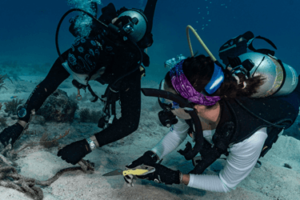
Sustainable Dive Travel: The Go Pro Family’s Efforts to Protect the Ocean

From Challenges to Triumphs: How IDC Graduates Made Waves in Their Scuba Careers
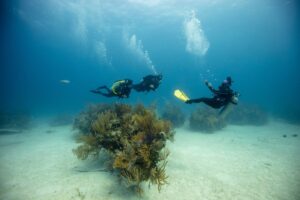
3 Reasons to Love Being a PADI Instructor (and how to rekindle lost love)
The Go Pro Family is PADI Platinum Course Directors Angel Navarro (from Spain) and Jo Armitage (from the UK), and their team of pros. Together, they have personally trained over 900 PADI Instructors, and have issued over 4000 professional-level certifications. Based in Playa del Carmen, Mexico, The Go Pro Family offers professional-level scuba training as well as technical, cave diving and freediving.


